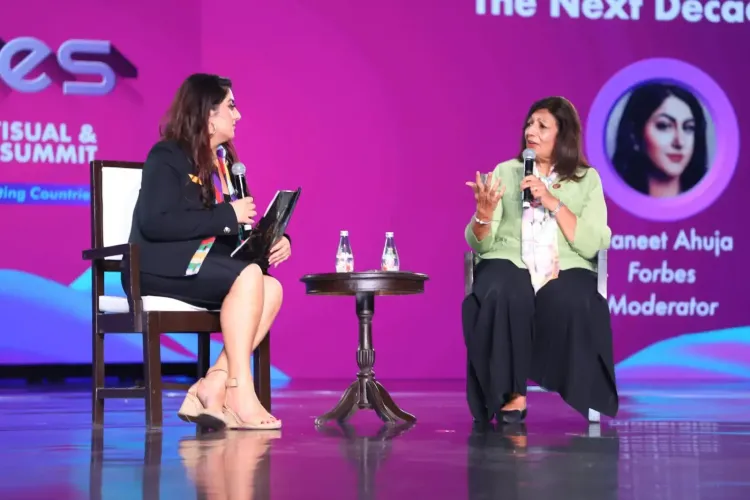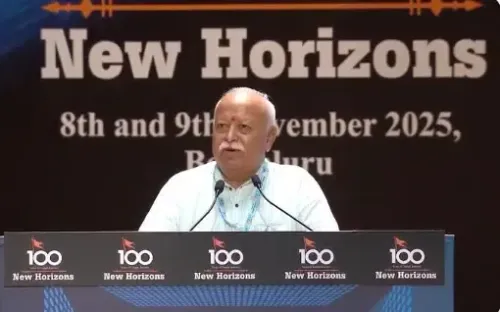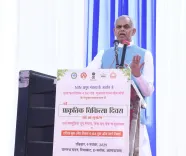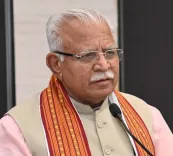Can India Achieve a $1 Trillion ‘Orange Economy’ by 2047?

Synopsis
Key Takeaways
- India's current media and entertainment contribution is $20 billion.
- Aim for $100 billion and ultimately $1 trillion by 2047.
- Focus on developing brands and intellectual property beyond films.
- Embrace technology to transform cultural heritage into global franchises.
- Perseverance and originality are key to success in the creative economy.
Mumbai, May 3 (NationPress) The media and entertainment industry currently contributes $20 billion to the GDP. We should set our sights on reaching $100 billion and ultimately aim for a $1 trillion ‘Orange Economy’ by 2047, aligning with Prime Minister Narendra Modi’s vision,” stated Kiran Mazumdar Shaw, a global business leader and founder of Biocon.
The term ‘Orange Economy’ signifies the creative economy, encapsulating knowledge-driven activities that intertwine culture, creativity, technology, and intellectual property to foster economic, social, and cultural progression.
Shaw encouraged Indian startups in the creative content field to extend their horizons beyond just films, and to develop brands, ecosystems, and intellectual properties that can make a significant impact globally during the World Audio Visual and Entertainment Summit (WAVES) 2025.
She emphasized the global potential of narratives originating from India.
“Now is the time for India to craft new stories that merge tradition with technology. Just as George Lucas drew on Indian epics for Star Wars, we can harness technology to elevate our cultural heritage into global franchises,” she remarked.
Highlighting India's demographic and digital advantages, she pointed out that with over a billion smartphones and a tech-savvy Generation Z, India is well-positioned for global innovation.
“However, like any blockbuster, success begins small—with a concept, a strategy, and unwavering focus,” she stressed.
Shaw drew parallels with her journey of founding Biocon in a garage and transforming it into a global biotech powerhouse.
Regarding India’s creative economy, she stated that stakeholders should concentrate on nurturing the burgeoning ‘Orange Economy,’ which holds tremendous potential.
In response to inquiries about India’s creative strengths, Shaw noted the importance of the convergence of augmented reality, virtual reality, and immersive experiences as pivotal areas for development.
“The upcoming unicorns will not merely be applications but creators who grasp intellectual property, technology, and immersive storytelling,” she asserted.
She encouraged startups to prioritize originality and perseverance, stating, “Every remarkable idea starts small. What truly matters is the distance you cover. Embracing failure is part of the journey.”









